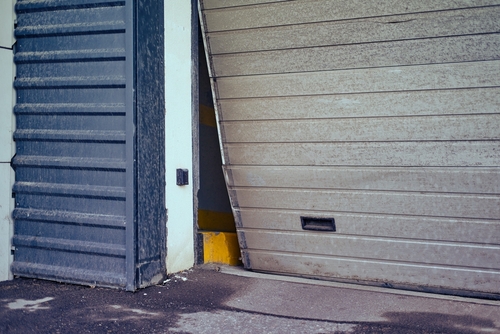

Common Winter Garage Door Problems and How to Prevent Them
Winter brings along coziness, snow, and of course the smell of holiday. However, it’s undeniable to ignore the associated drawbacks of this chilly weather and one of such is winter garage problems. Many homeowners often complain about stuck garage doors or damaged weatherstripping. But that should no longer be the norm as this article highlights different ways to circumvent these issues, providing a sense of security and peace of mind to homeowners.
Common Winter Garage Door Problems
From roofs to windows and even your garage doors, the cold weather presents many opportunities for damage in your home. Common winter garage door problems to watch out for include:
Freezing
Like every object battling the fierce cold, garage doors can also freeze to the ground, making them difficult to access.
Broken springs
Another common winter garage problem many homeowners face is broken springs. Garage springs are designed to provide extra support to the door and are also responsible for making it light whenever you choose to open and close it. Opening and closing your doors may be more difficult since they are brittle and prone to damage.
Frozen garage tracks
The cold weather can also freeze your track, especially when there are residues of track lubricants. Frozen tracks cause the ball bearings to spin, which inadvertently affects the door’s movement.
Other common garage door problems are misaligned tracks, sensor damage, hardened grease, contracting metal parts, malfunctioning openers, and poor insulation.
Solutions to Winter Garage Problems
To prevent one or all of the aforementioned winter garage door problems, adhere to the following tips:
- Opt for silicone-based lubricants for the garage’s weather stripping.
- Use a hair dryer at the highest heat level to gently melt ice off the garage door. This process is much safer than forcefully opening the door.
- Do not use ice melt products on your steel garage door. These products can cause future damage to your door, including corrosion and weakening of the steel. It’s best to use alternative methods to remove ice from your garage door. Use a grease solvent, such as a degreaser or a specific product designed for this purpose, to remove frozen lubricants on your ball bearings. Apply the solvent according to the manufacturer’s instructions to dissolve the frozen grease effectively. Check the batteries of your garage opener to ensure they are fit.
- Avoid using WD-40 on your garage door. While it’s a popular lubricant, WD-40 can attract dust and dirt, leading to a buildup that can interfere with your door’s operation. Instead, opt for a silicone-based lubricant. If you’ve lived in your home for over a decade, change your garage door springs.
Contact Merrimack Valley Glass & Mirror For All Of Your Garage Door Needs!
Winter-proofing your garage door before winter sets in remains the trusted way to stay two steps ahead. While this can be done at home, a professional garage door company has helped hundreds of families avert winter garage door problems. We are experts in repairing, installing, and weatherproofing garage doors for optimal efficiency. Contact us today to learn more!
